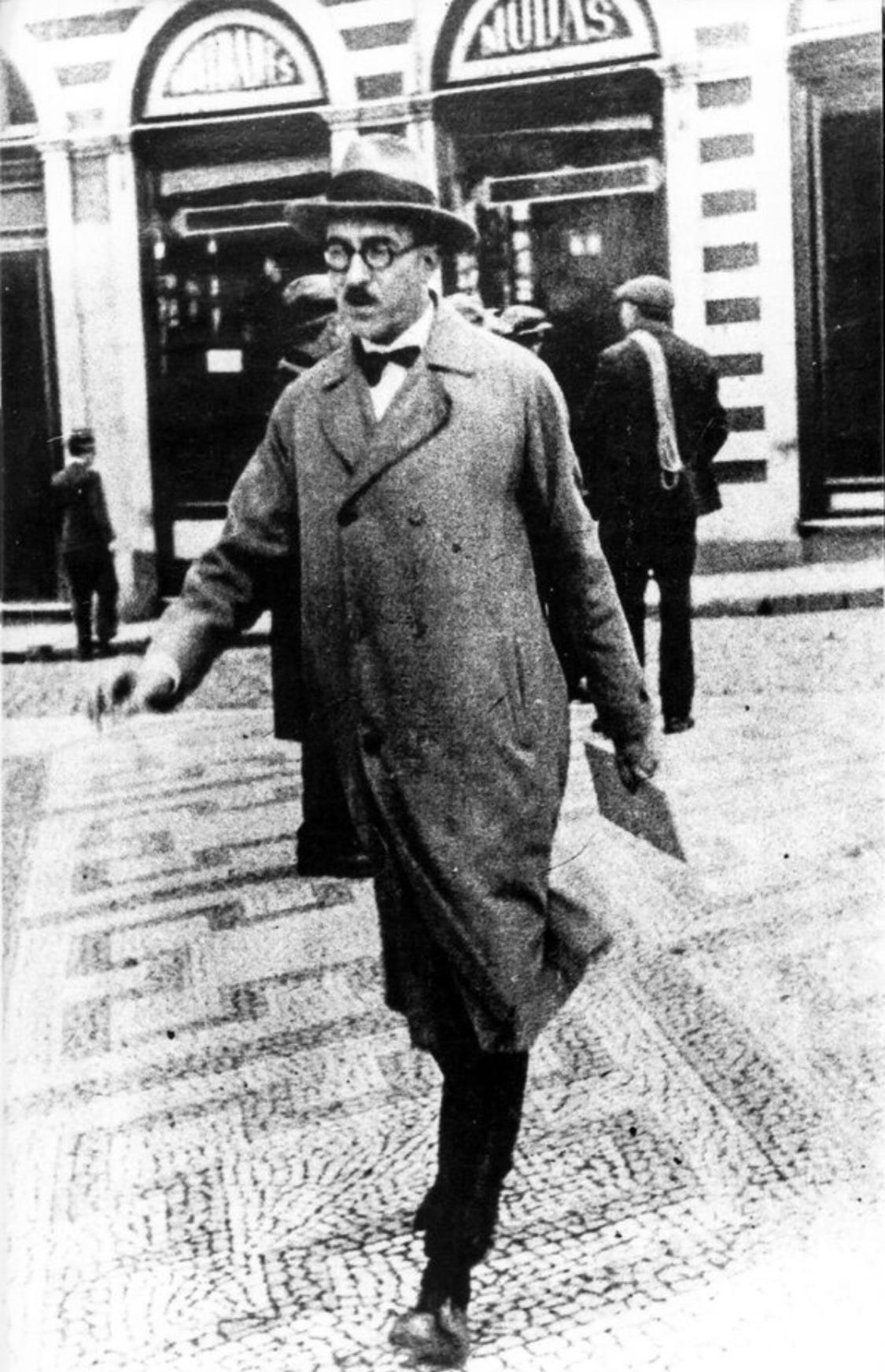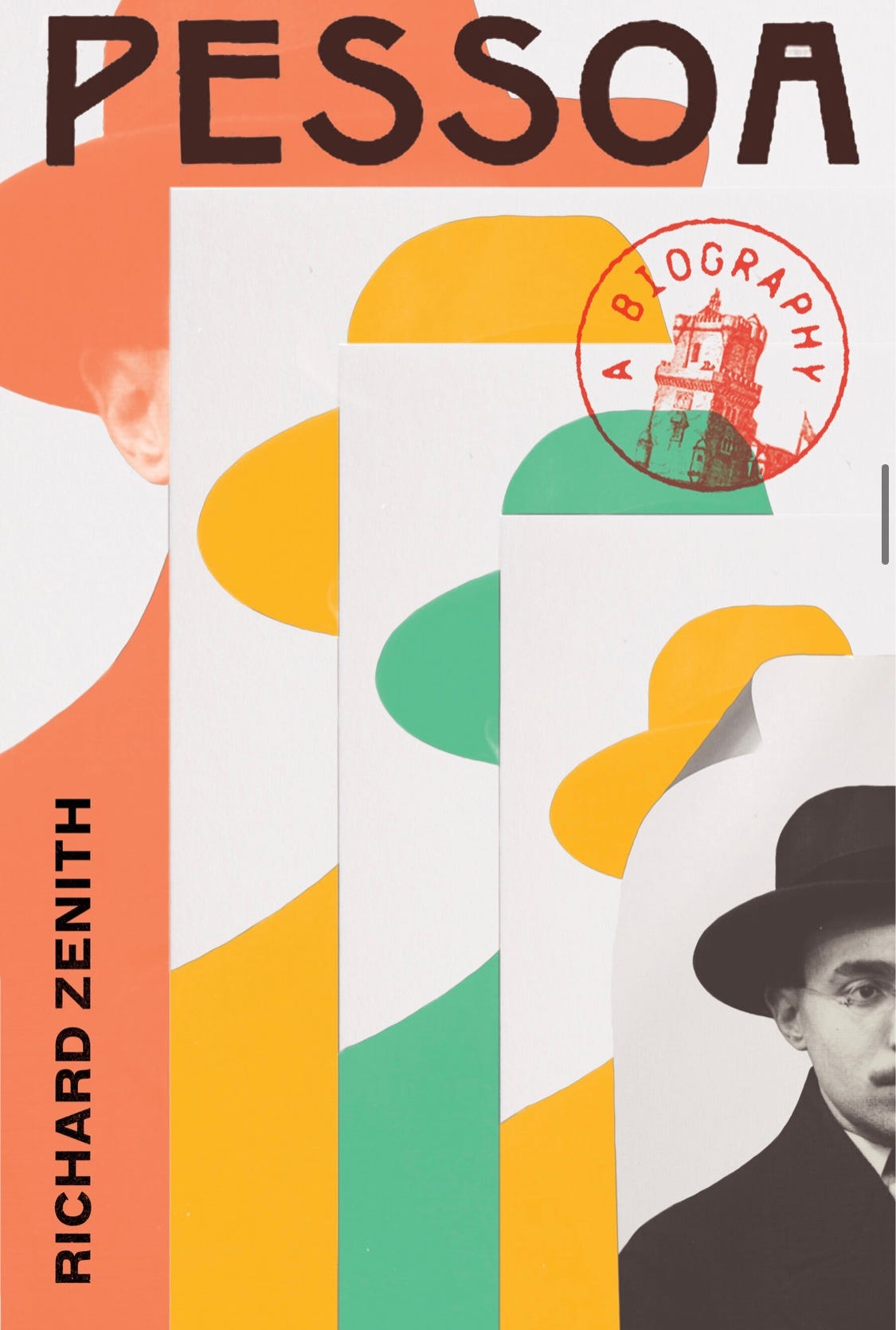Fernando Pessoa: Office Worker, Occultist, Galaxy of Writers
I review Richard Zenith’s new biography in The New York Times
PESSOA
A Biography
By Richard Zenith
The emergence of Fernando Pessoa as one of the world’s great modern writers, one worthy of Richard Zenith’s monumental new biography, has been nearly a century in the making. When Pessoa died in 1935, his family found one of the most sensational literary treasures to come to light since Lavinia Dickinson discovered 40 notebooks in her dead sister Emily’s chest. In the kind of featureless trunk used to store blankets or winter coats were 25,000 pages of writings.
Some of these works were complete. Most were not. It was hard to know what to do with this legacy, or even what it was. Pessoa’s handwriting was notoriously bad, first of all. He wrote in both Portuguese and English, the product of a South African childhood. But the most mystifying thing was that he didn’t seem to be a single person. He was a whole galaxy of writers — heteronyms, as he called them, with entirely different personalities and different, often radically conflicting, views on poetry, style, nature, politics and the antique. If they were all the creations of the man named Fernando Pessoa, the variety of the dozens of heteronyms made it hard to say who Pessoa himself was.
When his prose masterpiece, “The Book of Disquiet,” was published in Portuguese — this didn’t happen until 1982 — the edition immediately, inevitably became controversial. Some questioned the editors’ arrangement of the hundreds of fragments that make up the uncategorizable book. Others tried to distinguish between those that were written by Bernardo Soares, the professed author of the later sections; those by Vicente Guedes, who began the work; and those by Pessoa. These were harder questions to answer than they seemed — because technically, of course, Soares, Guedes and Pessoa were the same person.
If much was inscrutable about Pessoa, one thing, as these scraps emerged, was not: He bore that indescribable something that only the greatest geniuses possess. His singular brilliance was all the more remarkable because nothing on the outside suggested it. At his death, he was a writer of strictly local renown who published a single book of his Portuguese poetry in his lifetime. He was a routine office worker who, after his return from Africa in 1905 — his stepfather was a consul in Durban — never again left Portugal, and indeed hardly ventured more than an hour outside Lisbon. Yet he turned out to be an entire world of bewildering richness, an eccentric master (or masters) who inevitably attracted biographers. They started rummaging soon after his death. The first biography appeared in 1950, already 700 pages long. Its author, João Gaspar Simões, wrote that when he met Pessoa for the first time, he “was struck by how his feet hardly seemed to touch the ground, as if he were suspended by a wire hooked to an invisible nail.”
If some figures are smudged by passing time, Pessoa has grown steadily sharper. Time was needed to bring him back down to the ground — to piece together a full picture from the contents of his trunk. Zenith, an American resident of Lisbon, brought to the task a depth of scholarship gained through more than 30 years of publishing, translating and promoting his subject’s work; Pessoa, who had few intimates in life, is lucky to have found this posthumous friend. Zenith’s book is long, though not much longer than the biography published 71 years ago, and if it includes facts that were already known as well as facts that have come to light, its real merits lie elsewhere.
The first might be regarding Pessoa’s ambition. In contrast to Emily Dickinson, who seems to have been genuinely indifferent to the survival of her work, Pessoa wanted to be read. He was nearly obsessed with this problem, constantly drawing up plans for publication, starting magazines (the most successful lasted two issues) for his own work, and even, in a catastrophic quest to become a publisher, squandering a handsome inheritance that would have freed him from years of paying rent. He was ambitious, sometimes to the point of grandiosity. In his first published critical essay, titled “The New Portuguese Poetry Sociologically Considered,” he announced the arrival of a Great Poet to surpass even Luís de Camões, Zenith writes: “He did not mention that this presumptive Great Poet was himself.”
The second attainment of the book is the homosexualization of Pessoa. It has long been obvious to gay readers that Pessoa was one of them. (How many straight men write long lachrymose poems about Hadrian and Antinous?) His orientation has often been hidden — for the usual reasons, but also because his relationships were platonic; Zenith tells us that he died a virgin. Another reason may be that the popular image of Pessoa, derived from a handful of scrupulously expressionless photographs, makes it tough to associate him with any kind of sexuality at all. Zenith brings a nuanced understanding to this question, and describes how the poet finally sublimated his erotic yearnings into a mystical chastity.
The early 20th century was pyretic with fascination for the occult, the paranormal, theosophy, Rosicrucianism, kabbalah, séances, mediums, astrology and dreams; if most of the productions that emerged from this movement now seem whimsical at best, Zenith shows how Pessoa transformed a trendy amateur interest in occultism into an enduring art. For him, the heteronyms were not so much invented as they were manifested — like the dearly departed in a crystal ball, or an ancient soul conjured from a Ouija board — poised somewhere between heaven and earth. Not quite real but not fake either, these creations have, instead, the heightened reality of literature.
The poet’s struggles with his sexuality, his inability to finish projects, his swings between grandiosity and depression, his splintered sense of self: All of this sounds awfully familiar to anyone who has studied alcoholism. So, of course, does Pessoa’s death at 47, as an old man, his body wasted by drink. Yet in a book filled with so much highly informed psychological speculation, Zenith mostly steers clear of this aspect. He calls Pessoa’s failure to publish “inertia,” for example. But Pessoa was anything but inert; he was alcoholic. Zenith’s avoidance of the question is, alas, all too common in contemporary biography. If the taboo surrounding homosexuality has been broken, the taboo surrounding addiction remains.
What remains, too, and what matters, is the work. Zenith describes it as “a sprawling yet increasingly unbuilt city, whose builder was so busy laying the foundations for new structures that almost nothing rose higher than one or two unfinished floors.” This is accurate. Unlike so many writers, who built a nicely furnished house or even a neighborhood, Pessoa really did build an entire city. Incomplete — hieratic — chaotic: but a city nonetheless. It was a city that needed a guide. Thanks to Zenith, it has one at last.
Benjamin Moser’s latest book, “Sontag: Her Life and Work,” won the Pulitzer Prize in 2020.
PESSOA
A Biography
By Richard Zenith
Illustrated. 1,055 pp. Liveright. $40.



Congratulations, it is never too much to praise Fernando
love love love fernando. Zeniths book is great!!. So is yours on Clarice, reading it now. Keeping some notes online here fyi. https://dustyhope.substack.com/p/why-this-world-part-1